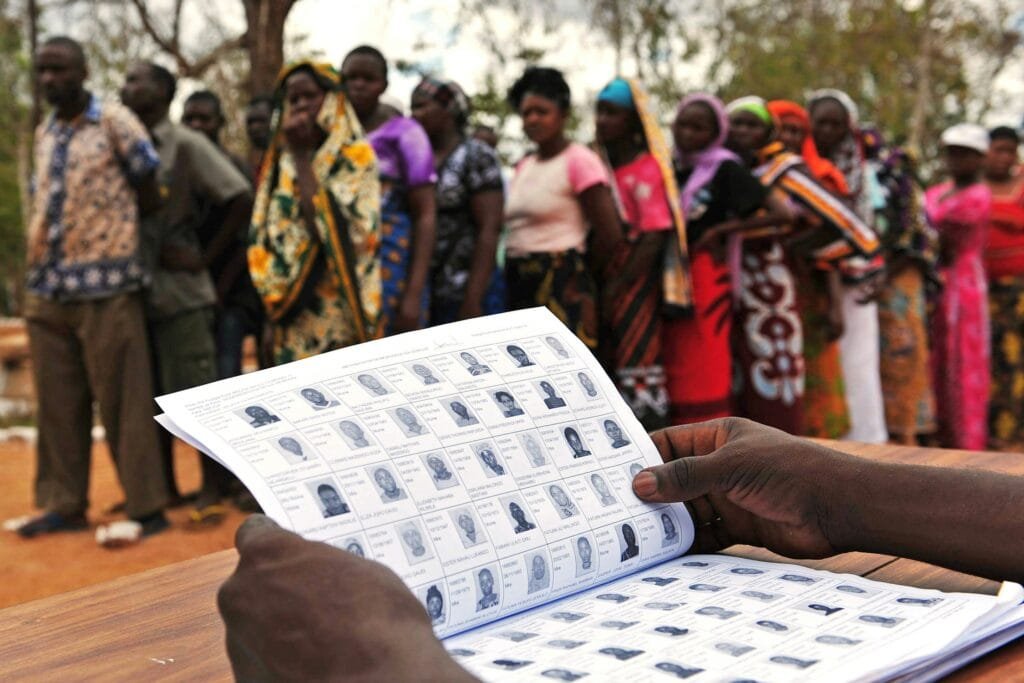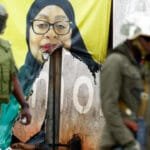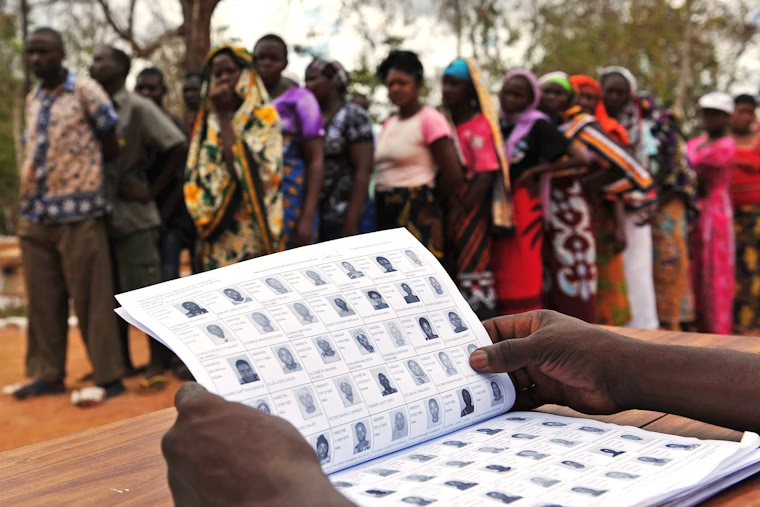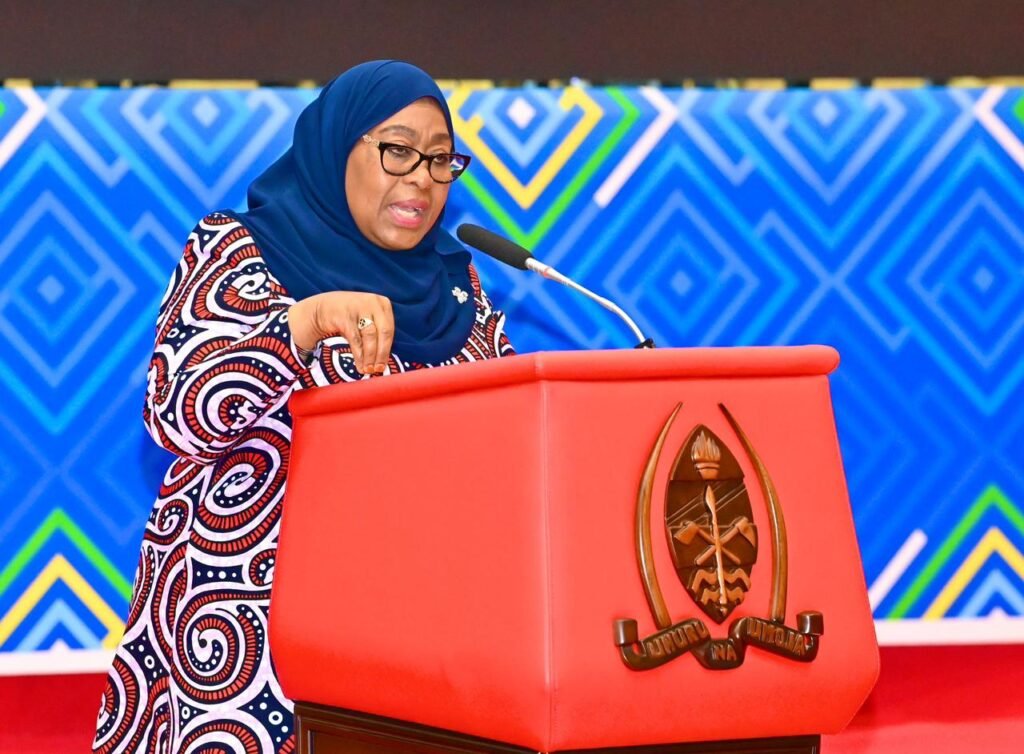Tanzania stands at a critical juncture in its democratic journey, as thousands march for political reform and inclusive governance. The East African nation, known for its rich cultural heritage and natural beauty, has long been hailed as a bonfire of stability in the region. However, recent political developments have stressed the need for concerted efforts to strengthen democratic institutions and safeguard the rights of its citizens.
Against the backdrop of President John Magufuli’s passing in 2021 and the subsequent ascension of Samia Suluhu Hassan to the presidency, Tanzania has witnessed a renewed push for electoral reforms and greater political pluralism. The lifting of the ban on opposition gatherings in 2023 marked a significant step towards fostering a more open and inclusive political environment. Yet, lingering concerns over the fairness and transparency of past elections continue to cast a shadow over the country’s democratic aspirations.
Central to the debate is the issue of presidential powers and the balance of power between the executive and legislative branches of government. The proposal to grant President Hassan the authority to directly appoint members of the electoral commission has stirred controversy, with critics warning of the potential for political manipulation and partisan interference. At stake is not only the credibility of future elections but also the broader democratic principles of accountability and transparency.
As Tanzania prepares for its first presidential election since Magufuli’s passing in 2021, the need for comprehensive electoral reforms has never been more pressing. The forthcoming debate on electoral legislation presents a key opportunity for Tanzanian lawmakers to address these concerns and chart a course towards a more inclusive and democratic future.
Protesters Demand Electoral Reforms Amidst Growing Opposition
Thousands of Tanzanians flooded the streets of Dar es Salaam in a monumental display of dissent against proposed changes to electoral laws, mark- ing the largest public demonstration since the ban on opposition political rallies was lifted in January 2023. Organized by the main opposition party, Chadema, the rally served as a potent assertion of citizens’ demands for transparent and fair electoral processes.
Chadema leader Freeman Mbowe, addressing the sea of supporters adorned in the party’s signature colors, declared, “This is just the beginning.” His words resonated with the dedication of those assembled, who voiced their discontent through chants and placards bearing messages demanding the withdrawal of controversial electoral bills, alleviation of skyrocketing living costs, and the assurance of in- dependent oversight for the forthcoming 2024 local government elections.
The significance of the protest extended beyond mere numbers; it symbolized a collective plea for substantive change in Tanzania’s political landscape. Nassor Ali, a resident from the impoverished Buguruni neighborhood, exemplified the widespread sentiment of solidarity, stating,
“I am not a member of Chadema, but I support the cause they are fighting for, which is why I decided to join them”.
Indeed, the demonstration underlined the growing frustration among Tanzanians with the perceived lack of transparency and fairness in the electoral process. The proposed reforms, viewed by many as potentially undermining democratic principles, have galvanized opposition forces and ignited a groundswell of activism demanding accountability and reform.
At the heart of the protesters’ grievances lies the urgent need for electoral laws that safeguard the integrity of the democratic process. Concerns over the impartiality of electoral insti- tutions and the fairness of electoral procedures have fueled fears of disenfranchisement and political marginalization among opposition supporters.
Ultimately, the protest in Dar es Salaam represents more than just a momentary display of discontent; it is a tribute to the resilience and determination of Tanzanians to safeguard their democratic rights and hold their leaders accountable. As the country stands on the precipice of a critical political moment, the outcome of the debate on electoral reforms will undoubtedly shape the trajectory of Tanzania’s democratic journey for years to come.
Seeking Reforms Ahead of 2025 Elections
As Tanzania prepares for its first presidential election since the passing of President John Magufuli in 2021, political tensions are on the rise, with opposition groups mobilizing for electoral reforms to ensure a fair and transparent democratic process.
Freeman Mbowe, who has been vocal in his criticism of the proposed reforms, argued that the authorities fail to adequately address the grievances stemming from the 2020 election, which saw Magufuli claim victory amidst allegations of fraud. Mbowe, who has faced imprisonment under both Magufuli and his successor Samia Suluhu Hassan, asserts that the proposed reforms are merely “cosmetic” and do little to enhance the independence and credibility of the electoral process.
Central to the opposition’s objections is a provision that would grant President Hassan the authority to directly appoint five out of the ten members of the electoral commission. Critics argue that such a measure could undermine the commission’s impartial- ity and independence, further entrenching the dominance of the ruling Chama Cha Mapinduzi (CCM) party.
At the forefront of the opposition’s demands are calls for constitutional reforms and greater autonomy for the electoral commission, aimed at fostering a level playing field for all political actors. Chadema, along with other opposition groups, has been actively campaigning for these reforms to be included in the legislation set to be debated by lawmakers in February.
Opposition activist Mdude Nyagali, speaking at a recent rally, emphasized the need for the government to withdraw the proposed bills, which he contends are designed to protect the interests of the ruling party rather than uphold democratic principles.
Since assuming office, President Hassan has sought to distance herself from the authoritarian tendencies of her predecessor, earning praise for her efforts to reverse some of Magufuli’s more controversial policies. Her decision to lift the ban on opposition gatherings in January 2023 was viewed as a positive step towards fostering greater political inclusivity and dialogue.
However, despite these gestures of goodwill, tensions between the govern- ment and the opposition remain palpable, with deep-seated mistrust lingering over the electoral process. The upcoming debate on electoral reforms presents a crucial opportunity for Tanzanian lawmakers to address these concerns and enact meaningful changes that reflect the aspirations of the country’s citizens.
As Tanzania gears up for a historic presidential election in 2025, the need for comprehensive electoral reforms has never been more pressing. The outcome of these deliberations will not only shape the future of Tanzanian democracy but will also serve as a litmus test of the government’s commitment to upholding the principles of free and fair elections. In the face of mounting pressure from opposition groups and civil society, the government must demonstrate its willingness to engage in genuine dialogue and pursue reforms that promote transparency, accountability, and inclusivity.
The Role of International Partnerships in Tanzania’s Democratic Development

Tanzania’s quest for democratic reform extends beyond its borders, with international partnerships playing a crucial role in shaping the country’s political landscape. As the East African nation navigates the complexities of political transition and electoral reform, collaboration with international allies offers valuable opportunities for knowledge-sharing, capacity-building, and advocacy for democratic principles.
Over the years, Tanzania has benefited from support from various international organizations, non-governmental organizations, and bilateral partners committed to promoting democracy and good governance. These partner- ships have provided critical assistance in areas such as election monitoring, institutional strengthening, and civil society empowerment, contributing to Tanzania’s democratic evolution.
One notable example is the support provided by organizations such as the United Nations Development Programme (UNDP) and the International Foundation for Electoral Systems (IFES) in enhancing the capacity of Tanzania’s electoral management bodies. Through technical assistance, training programs, and knowledge exchange initiatives, these organizations have helped bolster the effectiveness and independence of electoral institutions, laying the groundwork for credible and transparent elections.
Furthermore, international partners have played a pivotal role in advocating for key democratic reforms in Tanzania. From calls for greater transparency in electoral processes to the protection of human rights and civil liberties, the collective voice of the international community has served as a catalyst for change, amplifying the demands of Tanzanian civil society and opposition groups.
In recent years, however, Tanzania’s relationship with some international partners has faced challenges, particularly in the wake of controversies surrounding the conduct of elections and the shrinking space for political dissent. The government’s decision to withdraw from certain international agreements and initiatives has raised concerns about its commitment to upholding democratic norms and values.
Despite these challenges, the importance of international partnerships in Tanzania’s democratic development remains undeniable. As the country prepares for the upcoming presidential election in 2025, collaboration with international allies will be essential in ensuring the integrity and inclusivity of the electoral process. By leveraging the expertise and resources of its partners, Tanzania can address key challenges, strengthen democratic institutions, and foster a culture of political pluralism and accountability.
Moreover, international partnerships offer an opportunity for Tanzania to showcase its commitment to democratic principles and engage with the global community as a responsible member of the international community. By embracing dialogue and co- operation with its international allies, Tanzania can chart a course towards a more prosperous and democratic future, one that reflects the aspirations and values of its diverse population.









